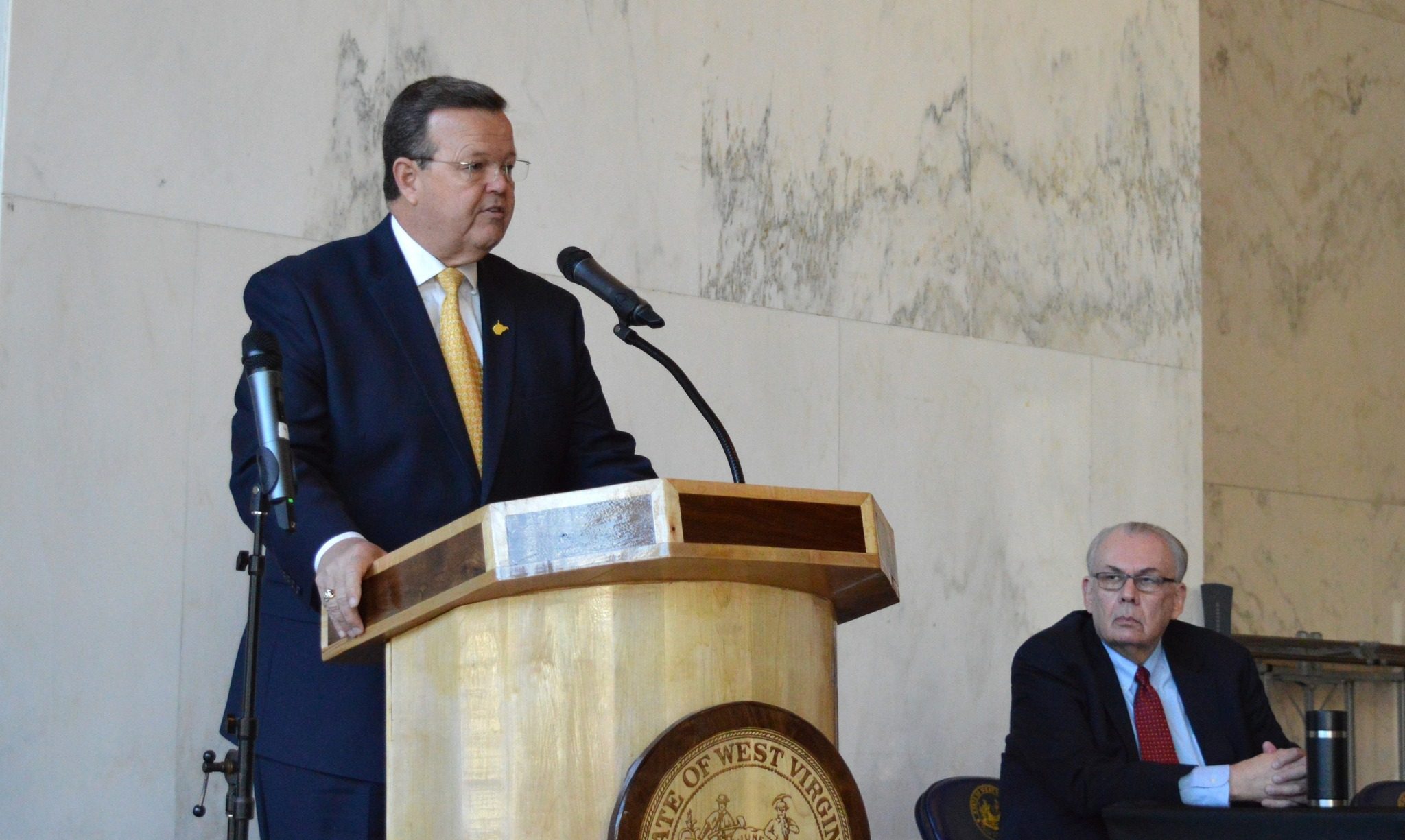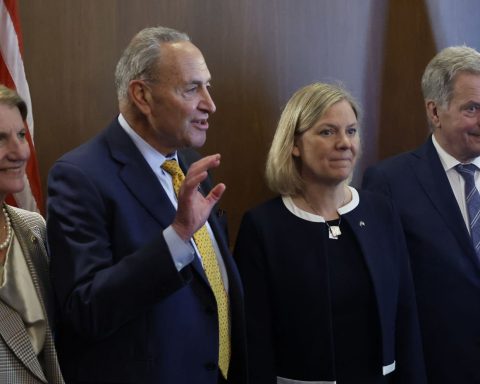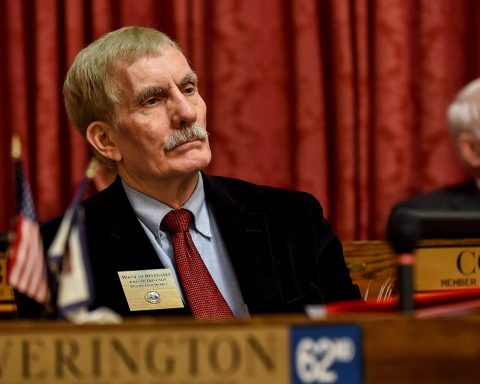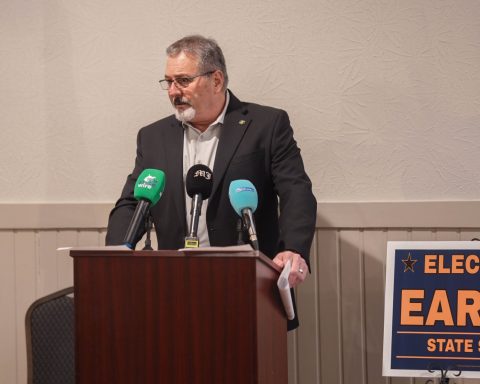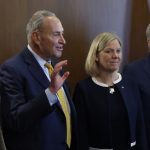CHARLESTON — West Virginia Secretary of State Kris Warner has placed a local chapter of West Virginians for Life under active investigation for allegedly failing to include a required disclaimer on one of its advertisements. This investigation comes amid growing concerns over the Secretary of State’s actions, which some critics say are part of a pattern of targeting conservative groups that do not align with certain political interests.
The investigation centers around a scanned image of a printed advertisement, which was submitted as “evidence” to the Secretary of State’s Office. Mountaineer Journal has obtained a copy of the advertisement that shows the footer of the printed image was obviously cut off and clipped using scissors above the printed disclaimer, leaving out the disclaimer that identifies the sponsor of the ad and “no affiliation” status. However, we have also obtained the original digital version of the advertisement, which was used in print, and it clearly shows the appropriate disclaimer text in its full form.
This is part of a larger development that shows questionable pattern behavior by the Secretary of State, where four conservative organizations have all come under investigation by Secretary Warner and the previous administration under his brother, Mac Warner. What ties these groups together is that all groups independently endorsed candidates who were primarily not endorsed by Conservative Policy Action (CPA), a special interest Super PAC with ties to Economic Development Authority (EDA) subsidy recipients. CPA was a major financial backer of Kris Warner’s successful bid for Secretary of State.
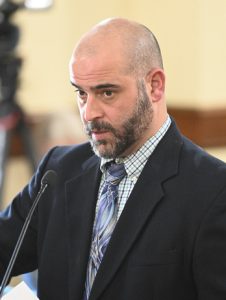
Mountaineer Journal can confirm that complaints against all four organizations were gathered and reported to their General Counsel David Cook, who has served a significant role in the authorization of these investigations.
The concerns surrounding the legitimacy of the Secretary of State are further compounded by an election complaint filed last July by Ken Reed, a former Republican candidate for Secretary of State. Reed, who was defeated by Warner in the 2024 Republican primary, alleged in his complaint that there was potential collusion between Warner and Mark Scott, a prominent figure connected to CPA. In his complaint, Reed expressed concern about the apparent connections between Warner, Scott, and the state EDA, which oversees critical state contracts.
“I suspect there was collusion between Mr. Scott and Mr. Warner throughout the campaign along with potential unethical dealings with state contracts,” Reed wrote. “I believe there should be a state investigation into the connection between Mr. Scott and Mr. Warner and Mr. Warner and the state EDA since Mr. Warner did not resign from his position to run for state office. There is massive conflict of interest going on since both Mr. Scott and Mr. Warner worked for the state with power over multiple contracts while soliciting funds.”
Matthew Parker, a political strategist and Executive Director of CPA, lists that he also performed past work with former Secretary of State Mac Warner. This demonstrates a strong history between the individuals involved with CPA and the Warner brothers.
This pattern of investigations against conservative groups has raised alarms for many observers. Critics argue that the inquiries are part of a broader strategy of legal harassment—known as “lawfare”—designed to create financial burdens for organizations and candidates that oppose CPA-backed candidates.
“It’s deeply concerning that the Secretary of State, the highest election official in our state, is engaging in what many view as frivolous investigations against conservative groups,” said one anonymous political analyst. “These groups now have to divert substantial resources to pay for legal representation to defend their right to free speech. This kind of conduct by a public official is a dangerous precedent for free and fair elections in West Virginia.”
The allegations against West Virginians for Life are just one example of the growing controversy surrounding Kris Warner’s administration. Critics claim the investigations, particularly those targeting groups critical of CPA and its political endorsements, are a thinly veiled attempt to stifle conservative viewpoints and suppress political dissent.
The controversy continues to unfold as more details of the investigation are expected to be revealed in the coming weeks. With the Secretary of State’s office under scrutiny, the case has become a flashpoint for discussions on free speech, political influence, and the power of state officials to regulate political speech in the state of West Virginia.
This also demonstrates continued harassment by the Secretary of State against West Virginians for Life and its chapters. In 1996, the West Virginia Secretary of State attempted to pursue charges against the pro-life organization under W. Va. Code § 3-8-12 for the “anonymous distribution of political material.” In West Virginians for Life, Inc. v. Smith, the court found that the claims made against West Virginians for Life were unconstitutional because the law was “not narrowly tailored to serve a compelling state interest” and violated the “broad protection the First Amendment gives to the right to publish anonymously.”
As investigations into minor technicalities (such as alleged missing disclaimers on advertisements) take center stage, many are left questioning why such fictitious or trivial complaints are receiving so much attention while a potentially far more significant scandal appears to be going largely ignored. The allegations raised by Reed, which point to possible collusion and unethical dealings between Warner, Conservative Policy Action, and the State EDA involve much more serious potential conflicts of interest that could have lasting implications for the integrity of West Virginia’s political and business landscape. Instead of prioritizing a full investigation into these high-stakes allegations, resources are being diverted to scrutinize inconsequential errors, raising concerns that the true scandal is being downplayed or intentionally overlooked in favor of targeting political opponents. This shift in focus raises uncomfortable questions about the motives behind these investigations and the potential for political favoritism in the handling of public trust.
As the investigations progress, the future of political communication in the state hangs in the balance, with many concerned about the implications for conservative groups and their ability to express their views without fear of legal retribution.


